On November 12th, 2020, jointly hosted by the Institute for Global Cooperation and Understanding (iGCU) of Peking University, U.S.-China Policy Institute of Ajou University and Kim Koo Forum, the 7th China-ROK Policy (Online) Academic Conference was successfully held. Aware that the world faces an increasingly complicated and uncertain international order, the organizers of the conference wish to promote exchanges between China and South Korea in order to deepen mutual understanding and trust between the two countries. We will share the opinions of the scholars on both sides at this conference.
The opening ceremony was presided over by Wang Dong, Executive Director of the iGCU of Peking University, as the Chinese representative, and Heung-kyu Kim, Director of the U.S.-China Policy Institute of Ajou University, as the South Korean representative.
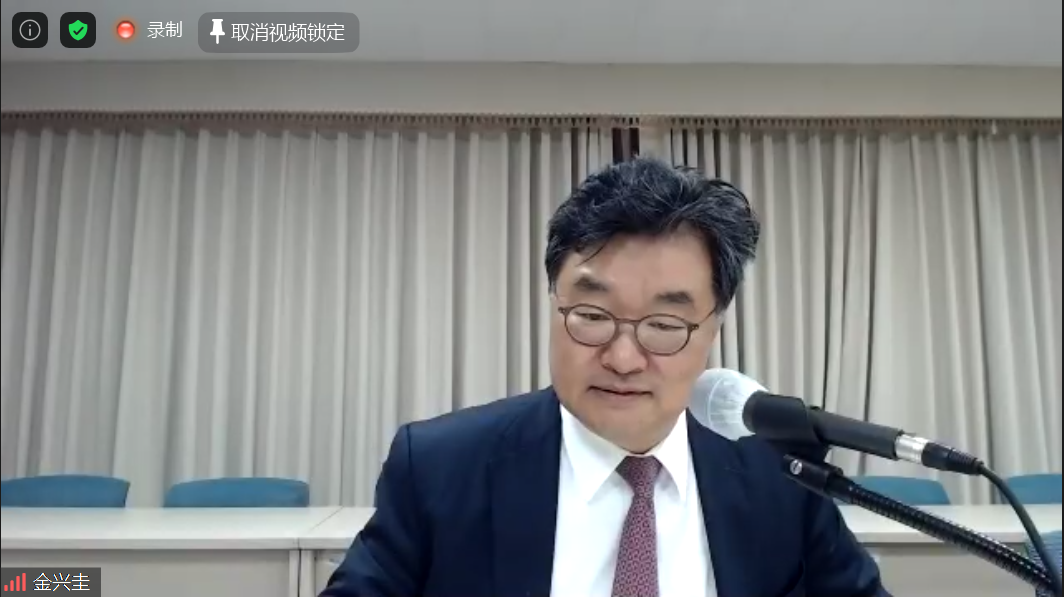
Heung-kyu Kim, Director of the U.S.-China Policy Institute of Ajou University, presides over the conference
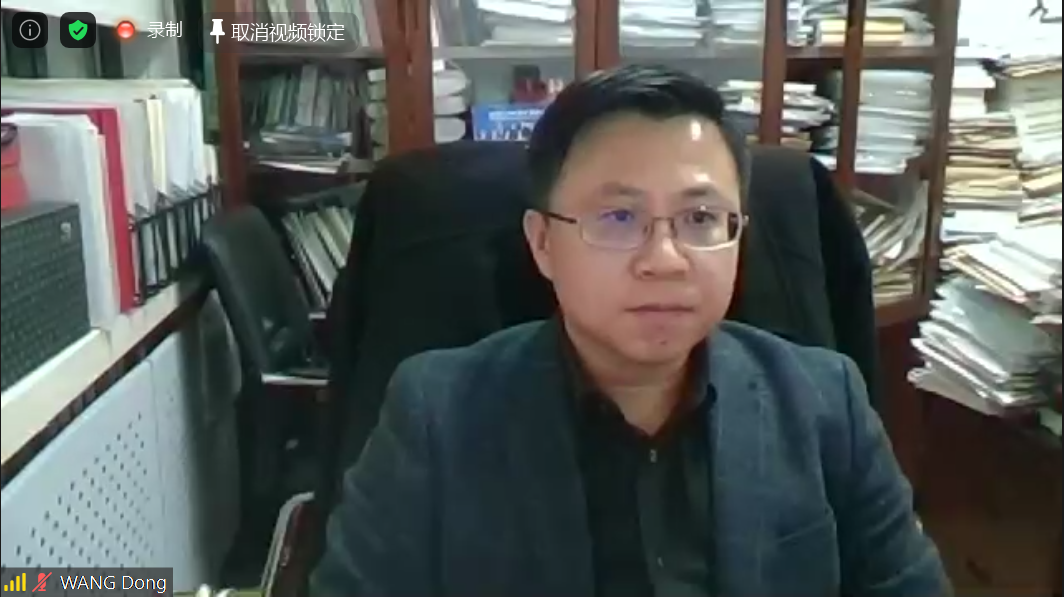
Wang Dong, Executive Director of iGCU of Peking University, Vice-Minister of Office of Humanities and Social Sciences in Peking University, presides over the conference
During the opening address, Moon Chung-in, Special Advisor to the President of South Korea on Foreign Affairs and National Security, and Honorary Professor of Yonsei University, highlighted the timeliness and importance of this policy dialogue, and said that this conference makes up for the lack of academic and policy interaction between China and South Korea. Scholars participating in this conference have a wide range of backgrounds, enabling them to offer versatile suggestions for policy interaction between China and South Korea from diverse viewpoints.
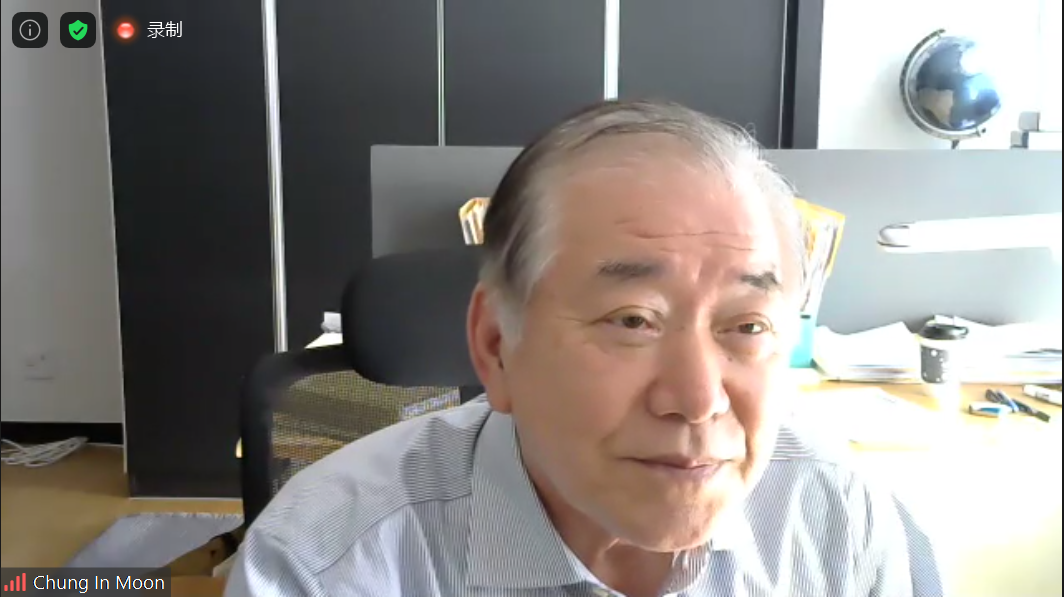
Moon Chung-in, Special Advisor to the President of South Korea on Foreign Affairs and National Security, and Honorary Professor of Yonsei University, delivers a keynote speech
When discussing China-U.S. relations and the great changes in the world under the influence of COVID-19, Yu Hongjun, Former Vice Minister of the International Department of the CPC Central Committee and Senior Advisor of the iGCU of Peking University, emphasized the importance of maintaining strategic security and stability in Northeast Asia, as well as deepening the new-type cooperation relationship in the Korean Peninsula under the strategic competition between China and the U.S. comprehensively. He also proposed the prospect for the future development of Northeast Asia.
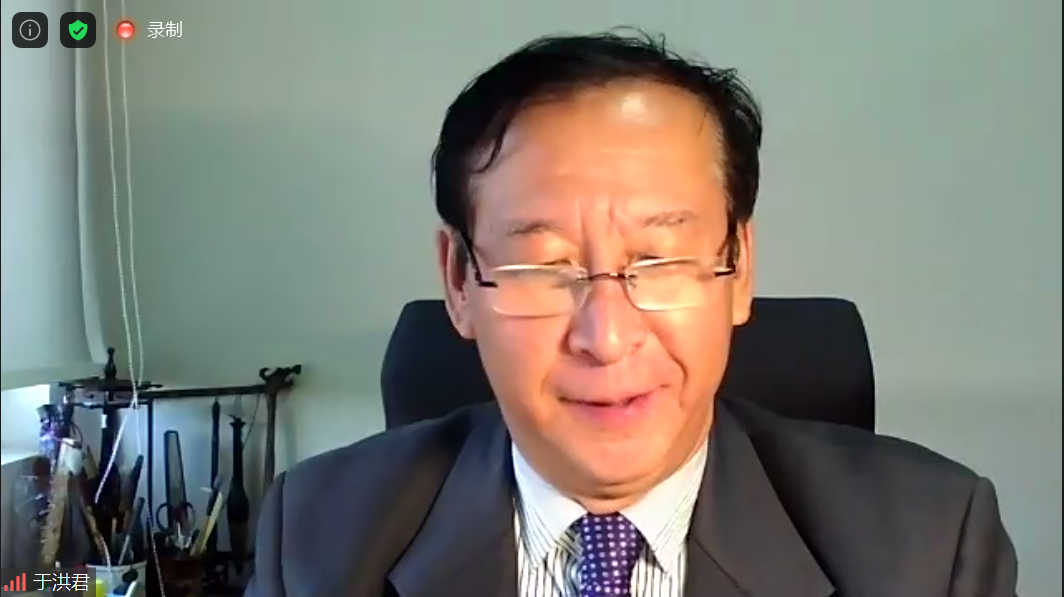
Yu Hongjun, Senior Advisor of iGCU of Peking University, Former Vice Minister of the International Department of the CPC Central Committee, delivers a keynote speech
Chun Jinhwan, Chairman of the Kim Koo Fund, recollected the positive role played by the Kim Koo Forum in promoting bilateral people-to-people exchange and dialogue between China and South Korea, and highly commended this policy dialogue.
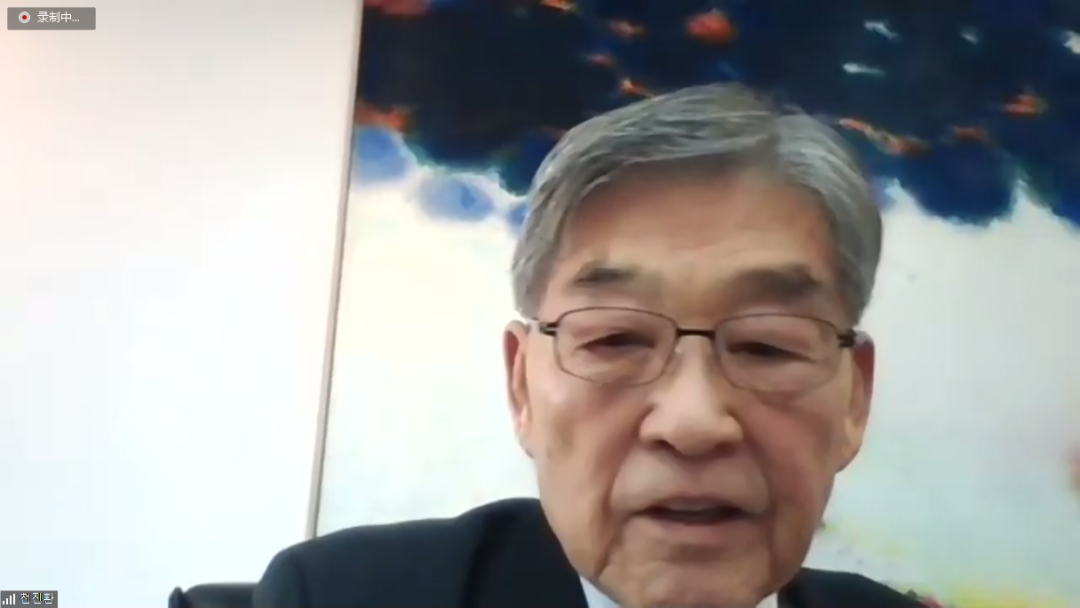
Chun Jinhwan, Chairman of the Kim Koo Fund, delivers a keynote speech
Subforum I
Subforum I of the Conference was presided over by Wang Dong, Executive Director of the iGCU of Peking University. It focused on evaluating the prospects of China-U.S. strategic competition and discussing the coping strategies of the two countries.
Zhu Feng, Dean of the Institute of International Relations of Nanjing University, Vice-Chairman of the China National Association for International Studies and Academic Member of the iGCU of Peking University, mentioned that COVID-19 is the decisive factor in the U.S. presidential election and its political changes. He then analyzed the differences between the "New Cold War" between China and the U.S. and the Cold War between the Soviet Union and the U.S., and predicted the new changes to China-U.S. relations that may come with Biden's administration.
Sang Hyun Lee, Chief Researcher at the Sejong Institute and former Policy Planner of the Ministry of Foreign Affairs, analyzed the guidelines and foreign policy options of the Biden government, and concluded that the competitive strategic situation of the U.S. policies against China will not change, but the specific strategies and methods will be different from those of the Trump government.
Boo Hyeong Wook, Researcher at the Agency for Defense Development of South Korea and former Chief Executive of the National Security Office of the Blue House, touched on the relationship between China-U.S. strategic competition and the nuclear security of the Korean Peninsula in terms of South Korea's security situation, and analyzed the balance of power of the various parties involved in the North Korea nuclear issue.
Zhang Yunling, Member of the Academic Division of the China Academy of Social Sciences (CASS), Dean of the China Institute of International Studies at Shandong University and Academic Member of the iGCU of Peking University, submitted a written speech in which he shared his views on China-U.S. strategic competition in five aspects, including the characteristics and main manifestations of China-U.S. strategic competition, as well as the room for communication, dialogue, negotiation and cooperation between China and the U.S..
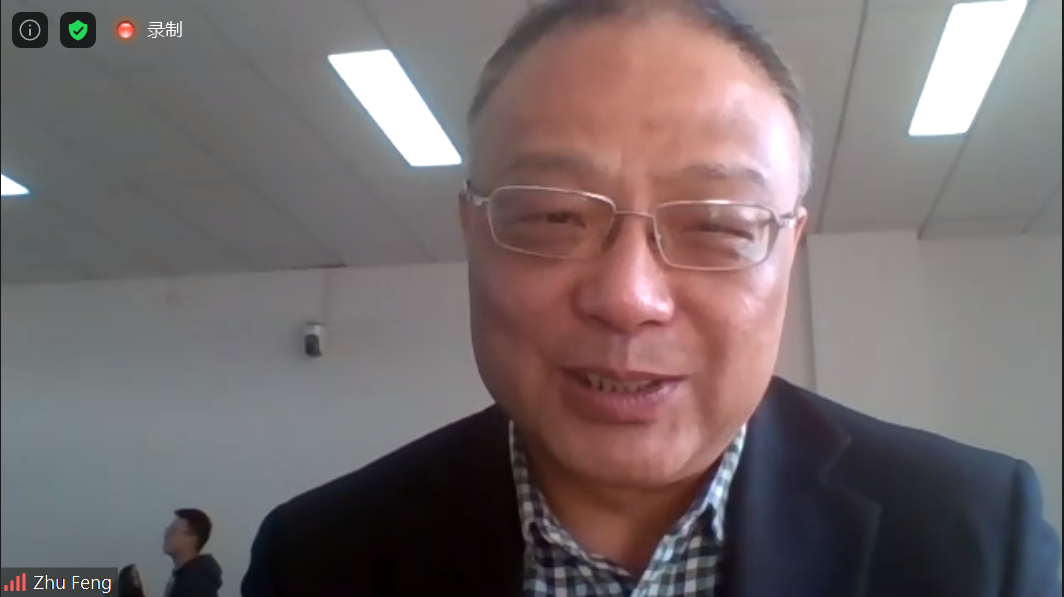
Zhu Feng, Member of the Academic Committee of iGCU of Peking University, Dean of the Institute of International Relations of Nanjing University and Vice-Chairman of the China National Association for International Studies, delivers a speech
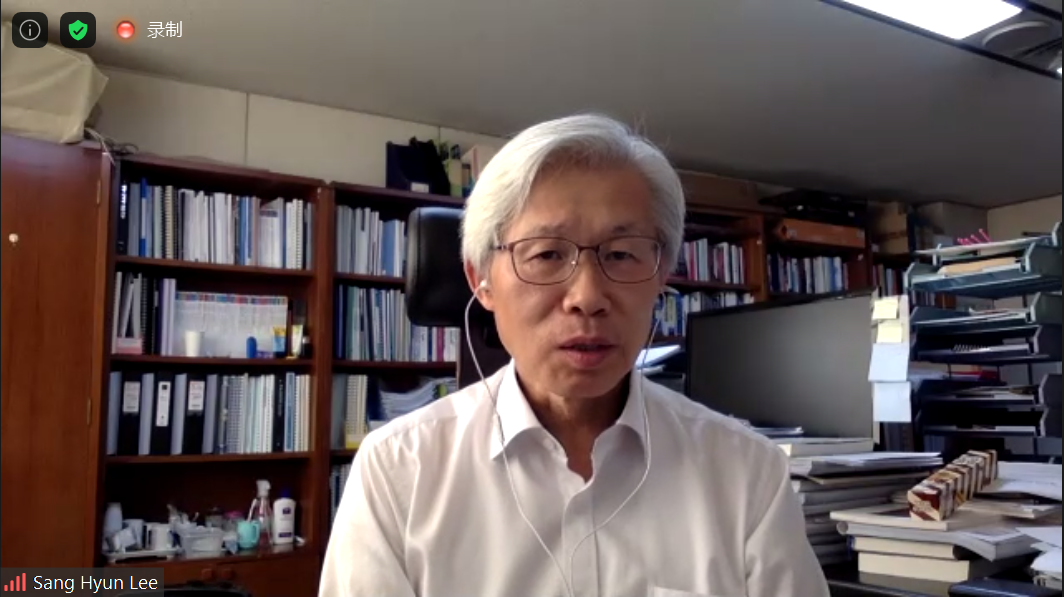
Sang Hyun Lee, Chief Researcher at the Sejong Institute and former Policy Planner of the Ministry of Foreign Affairs, delivers a speech
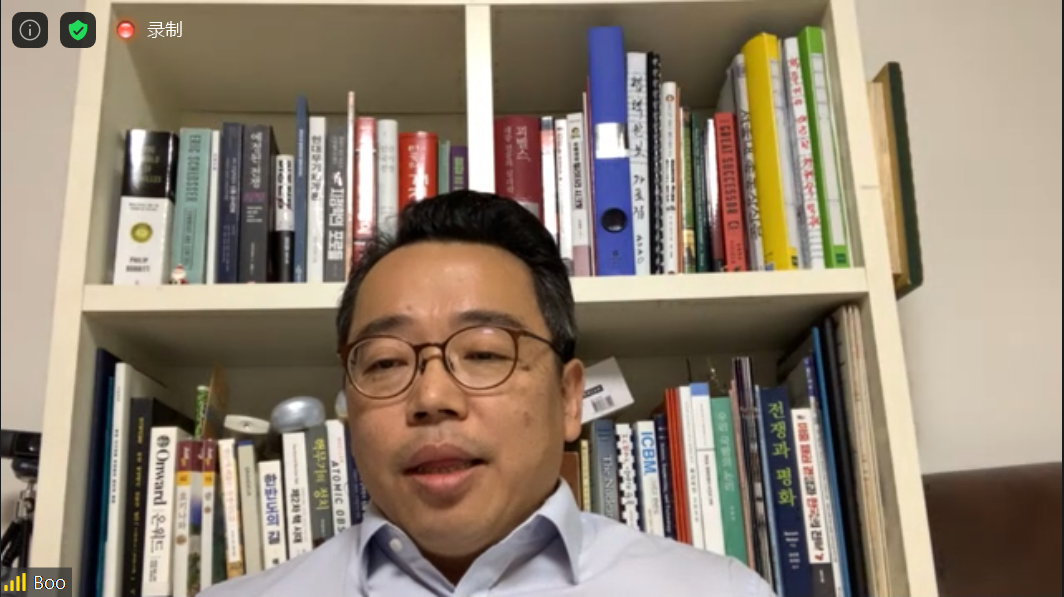
Boo Hyeong Wook, Researcher at the Agency for Defense Development of South Korea and former Chief Executive of the National Security Office of the Blue House, delivers a speech
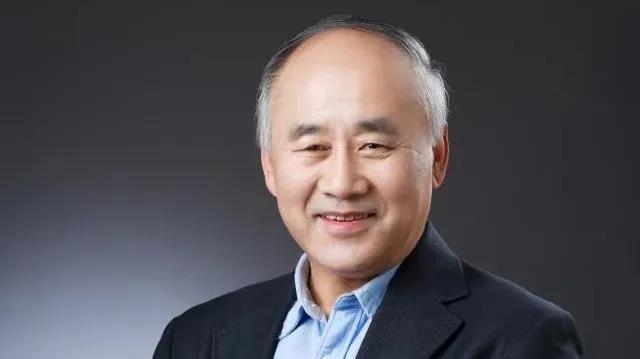
Zhang Yunling, Member of Academic Committee of iGCU of Peking University, Member of the Academic Division of CASS and Dean of the China Institute of International Studies at Shandong University, delivers a speech
The discussion session of Subforum I was participated in by experts and scholars from both China and South Korea including Heung-kyu Kim, Director of the U.S.-China Policy Institute of Ajou University, Zhang Jingquan, Professor of the School of Northeast Asia Studies and China Institute of International Studies of Shandong University, Li Chunfu, Deputy Director of the Asia Research Center and Deputy Director of the Korea Research Center of Nankai University, Li Wanghui, Professor of Politics and Diplomacy at Ajou University, Qi Haotian, Secretary-General of the iGCU of Peking University, and Shin Beomchul, Director of the Diplomacy and Security Division of the Korean Institute of National Security Strategy, and former Policy Planner of the Ministry of Foreign Affairs. The experts and scholars engaged in deep discussions and interaction regarding the role of China in the Biden era, confusion and misjudgment in China-U.S. relations, denuclearization trend in the Korean Peninsula, strategic prospects and coping strategies of China and the U.S., development and evolution of China-South Korea relations, and security equality of nuclear safety in South Korea and North Korea.
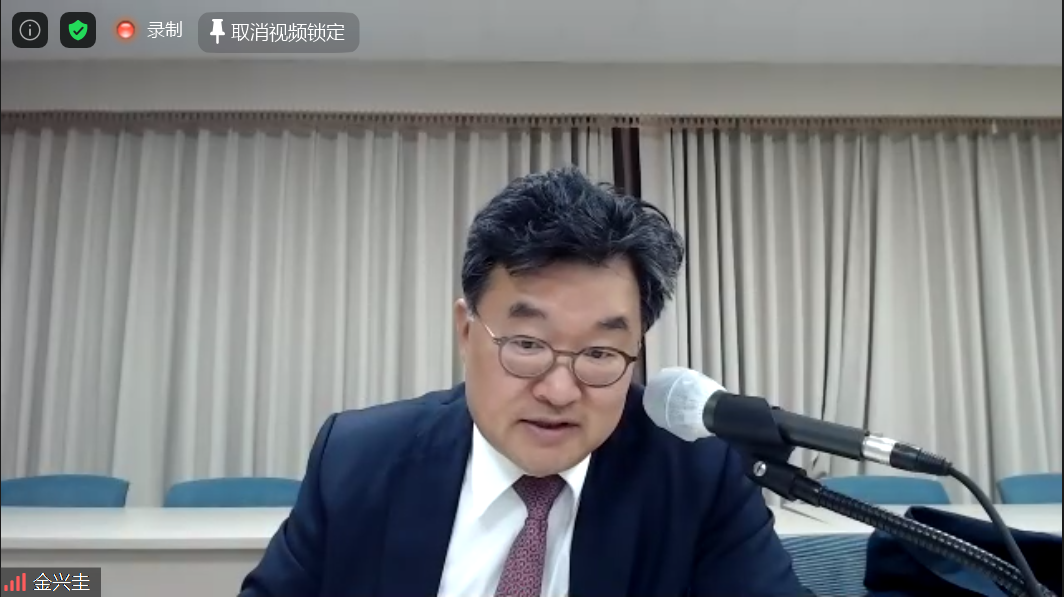
Heung-kyu Kim, Director of the U.S.-China Policy Institute of Ajou University, delivers a speech
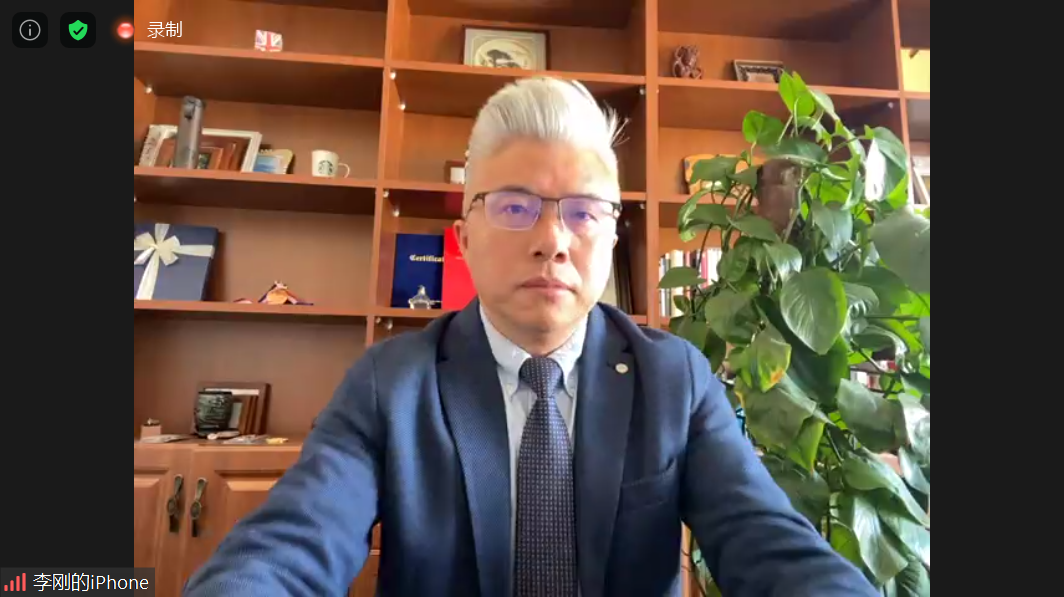
Zhang Jingquan, Professor of the School of Northeast Asia Studies of Shandong University, delivers a speech
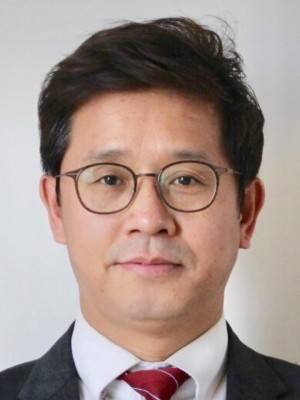
Li Chunfu, Deputy Director of the Asia Research Center and Deputy Director of the Korea Research Center of Nankai University, delivers a speech
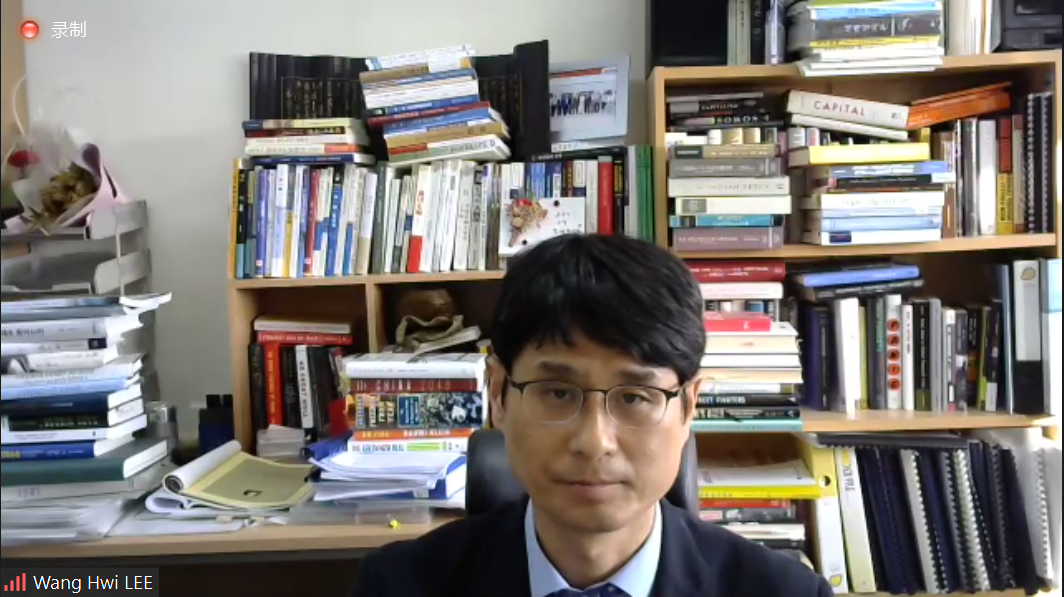
Li Wanghui, Professor of Politics and Diplomacy at Ajou University, delivers a speech
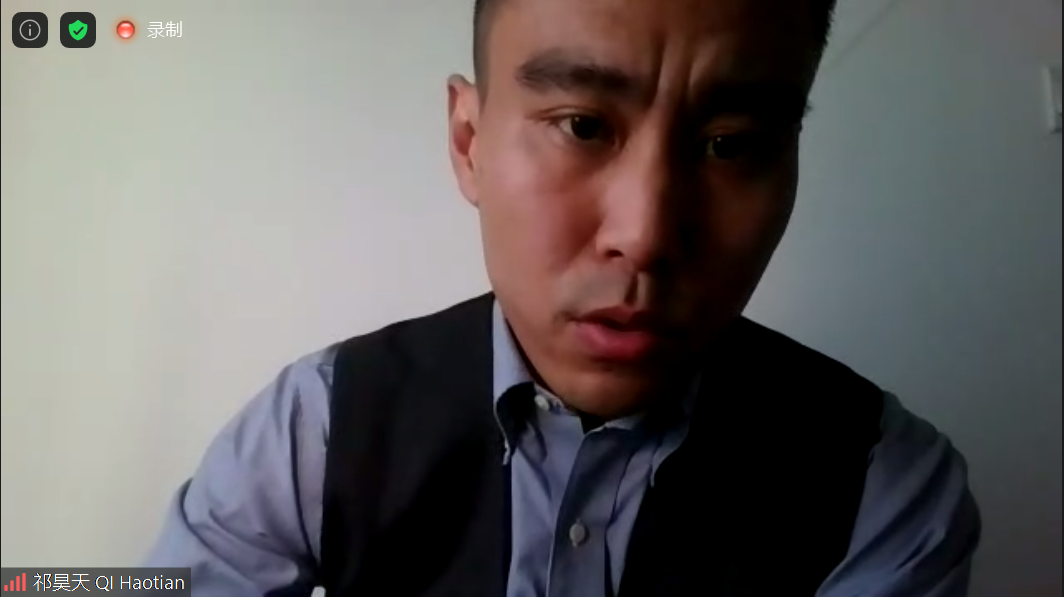
Qi Haotian, Secretary-General of the iGCU of Peking University and assistant professor of School of International Studies in Peking University, delivers a speech
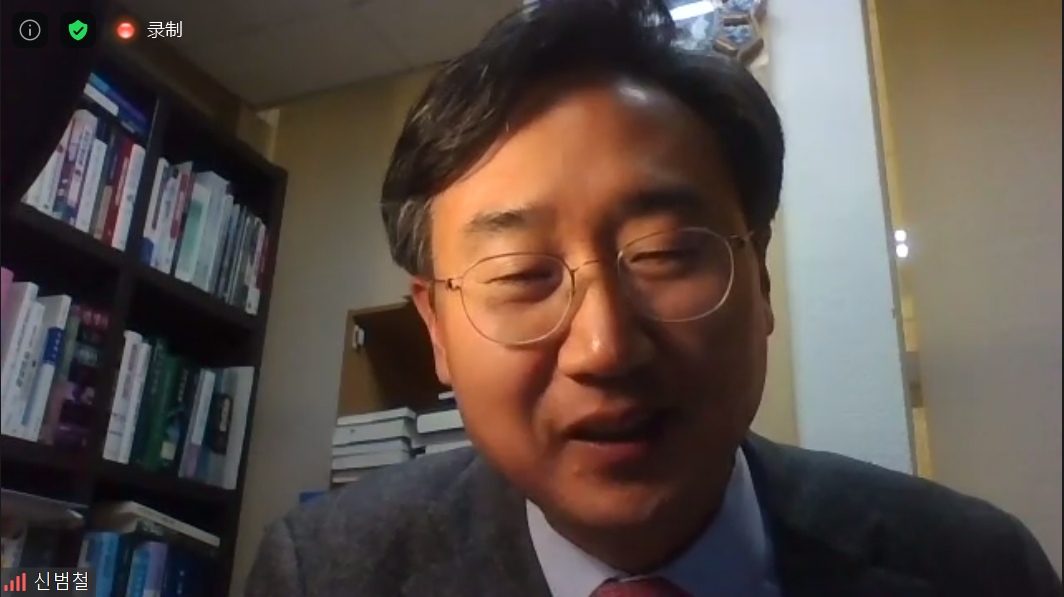
Shin Beomchul, Director of the Diplomacy and Security Division of the Korean Institute of National Security Strategy, and former Policy Planner of the Ministry of Foreign Affairs, delivers a speech
Subforum II
Presided over by Director Heung-kyu Kim, Subforum II focused on China-U.S. strategic competition and security issues of the Korean Peninsula.
Jia Qingguo, Director of the iGCU of Peking University and Professor of the School of International Studies of Peking University, said that the certainty and predictability of American policies towards China and future China-U.S. relations will be stronger if Biden is elected president. Although the U.S. will continue to put pressure on China, the space for China-U.S. cooperation will also be widened, which may eventually lead to a new type of competitive and cooperative relationship. China-U.S. relations will influence the stability of the Korean Peninsula in three aspects: high-tech transfer, human rights issues and nuclear safety.
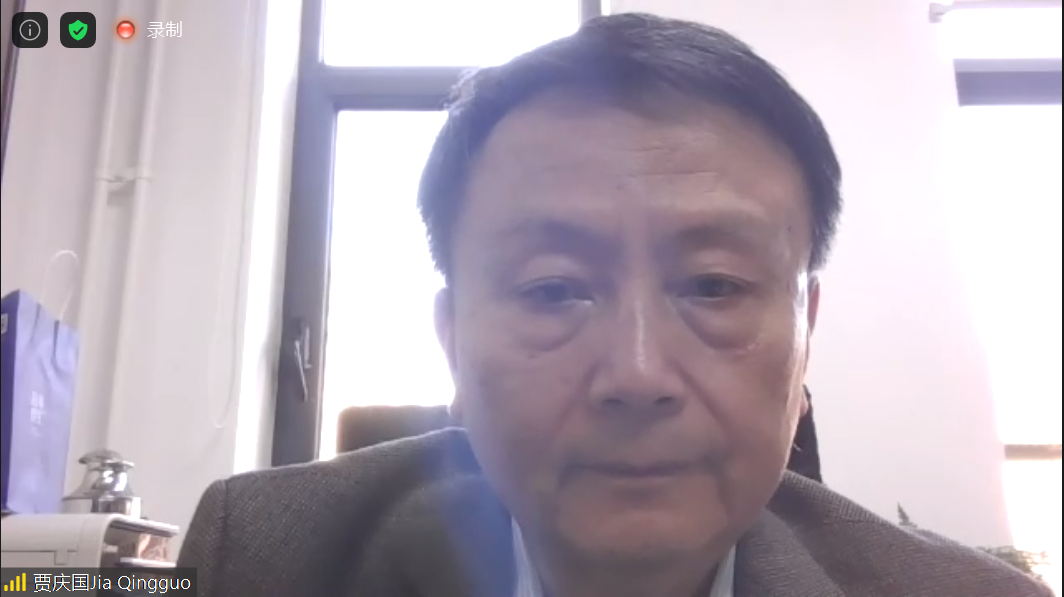
Jia Qingguo, Director of the iGCU of Peking University, professor of School of International Studies in Peking University, Former Dean of School of International Studies in Peking University and member of 11th, 12th and 13th CPPCC Standing Committee, delivers a speech
Jin Chang-Soo, Chief Researcher and former Director of the Sejong Institute, stressed that the strategic competition between China and the U.S. forces Japan and South Korea to make strategic choices. The traditional Japan-U.S. relations and Korea-U.S. relations will be fine-tuned, and the situation in Northeast Asia will change. As strategic competition between China and the U.S. intensifies, strategic cooperation between South Korea and Japan will be required.
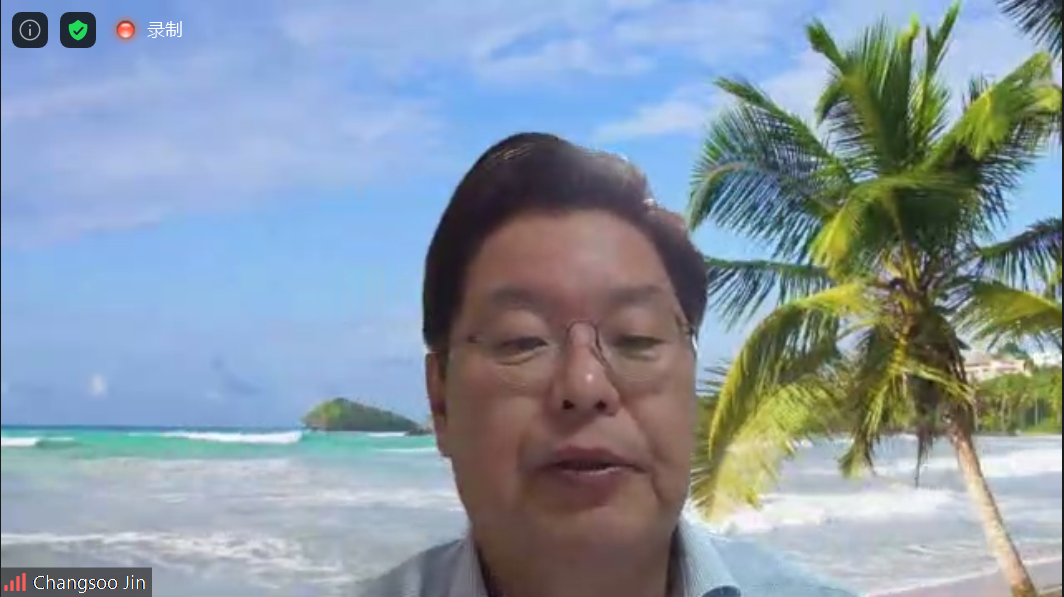
Jin Chang Soo, Chief Researcher and former Director of the Sejong Institute, delivers a speech
Gong Keyu, Director of the Asia-Pacific Research Center of the Shanghai Institutes for International Studies, pointed out that the current changes in American politics create a "window period" for the situation in the Korean Peninsula. All nations must seize this opportunity and take solid measures to promote cooperation. China should focus on the "neighboring circulation" in Northeast Asia and enhance its policy coordination and communication with Japan and South Korea.
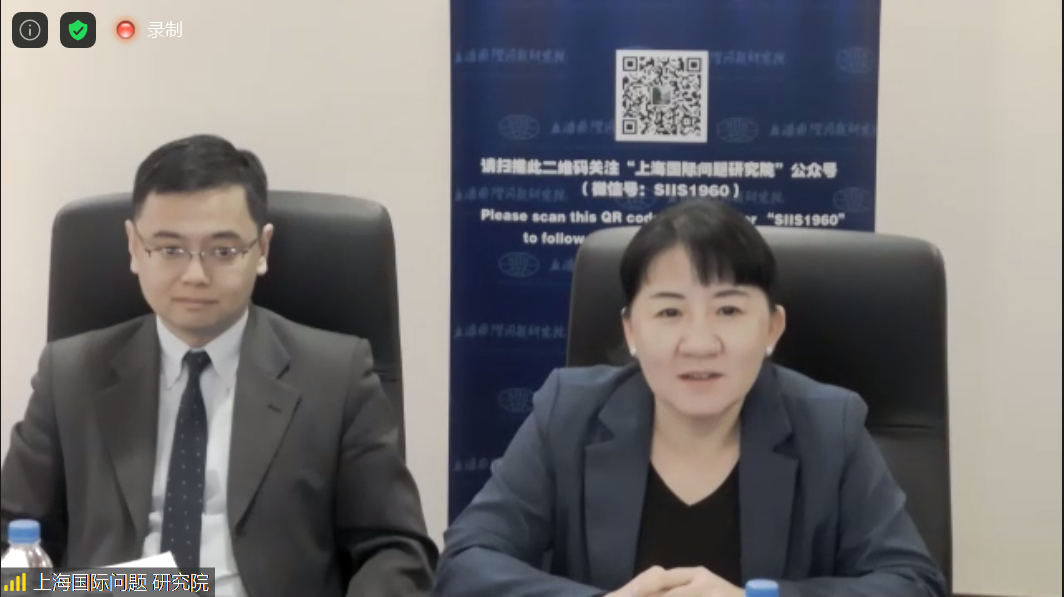
Gong Keyu, Director of the Asia-Pacific Research Center of the Shanghai Institutes for International Studies, delivers a speech
Jun Bong-Geun, Executive Director of the Institute of Foreign Affairs and National Security of the Korea National Diplomatic Academy, drew attention to the interaction between the bilateral policies of the U.S. and South Korea when Biden rises to power, as well as the profound impact of such policies on Korea-U.S. relations and the security of the Korean Peninsula. He talked about the response and assessment of South Korea, and expressed his belief that the U.S. and North Korea must re-establish a dialogue and engage in negotiations in order to strengthen mutual trust. He stressed that the stakeholders need to draft a roadmap for the denuclearization of North Korea and the construction of a peace mechanism in the Korean Peninsula and multilateral security cooperation in Northeast Asia, and promote such a roadmap to South Korea, the U.S., China and North Korea.
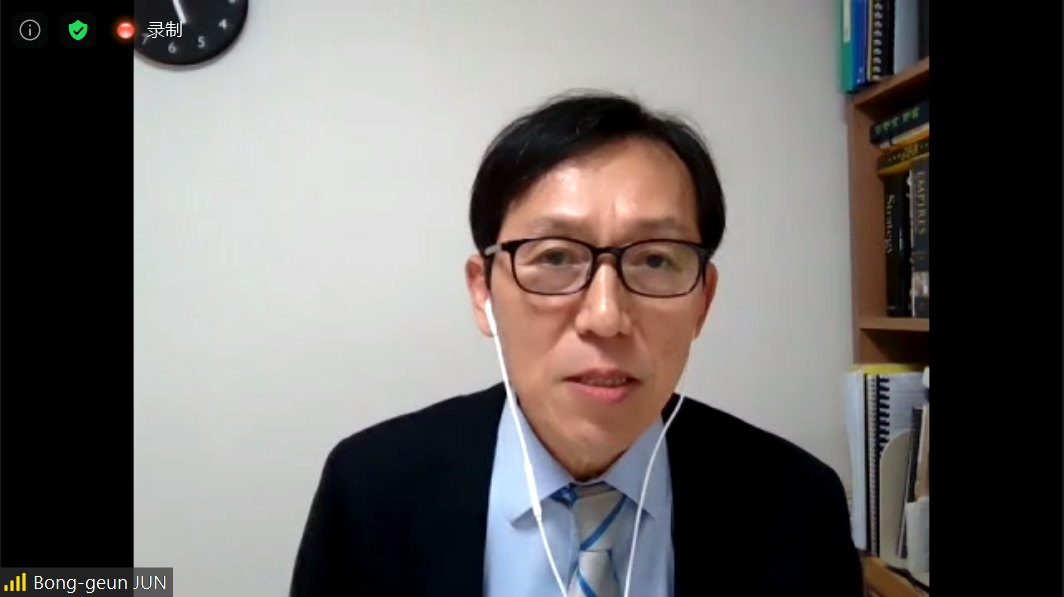
Bong-Geun Jun, Executive Director of the Institute of Foreign Affairs and National Security of the Korea National Diplomatic Academy, delivers a speech
Subforum II was participated in by experts and scholars including Zhen Jiyong, Director of the Institute for International Studies of Fudan University, Cha Du Hyeogn, Principal Fellow of the Asan Institute for Policy Studies and Acting Secretary of Crisis Information of the Blue House, Bae Ki-chan, part-time Professor and Consultant of the Korea National Diplomatic Academy, Piao Dongxun, Director of the Institute of International Politics and Professor of the Department of International Politics of Yanbian University, Wang Xingxing, Professor of the Korean Peninsula and Asia-Pacific Strategy Research Center of the Shanghai International Studies University, Wang Junsheng, Research Fellow of the National Institute of International Strategy of the Chinese Academy of Social Sciences (NIIS CASS) and Director of the China Neighboring Strategy Laboratory, Kim Jin Ho, Professor of the Department of Diplomacy of Dankook University, and Jung Whan Woo, Chinese Investigation Officer of the Korea Trade-Investment Promotion Agency. The experts and scholars held in-depth discussions on topics such as the external environment and internal politics of the Korean Peninsula, THAAD anti-missile system and strategic mutual trust between the U.S. and South Korea, promotion of the China-Korea strategic partnership, China and South Korea's observation of American public diplomacy, China-Korea relations in the context of the peaceful development of Northeast Asia, American economic and trade policies against China and China's coping strategies, economic and trade interactions in Northeast Asia, and the Trans-Pacific Partnership.
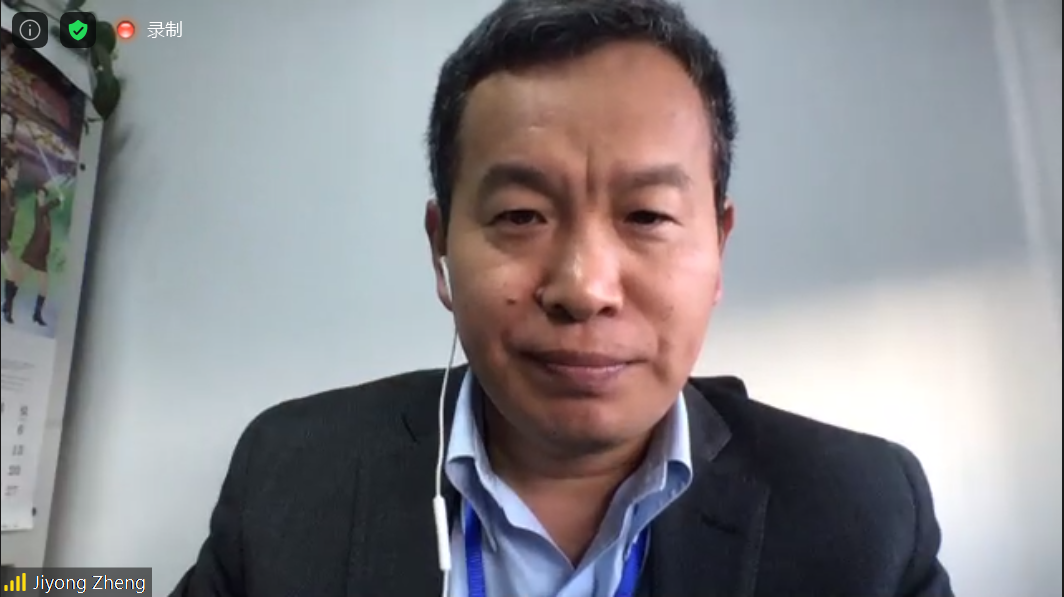
Zhen Jiyong, Director of the Institute for International Studies of Fudan University, delivers a speech
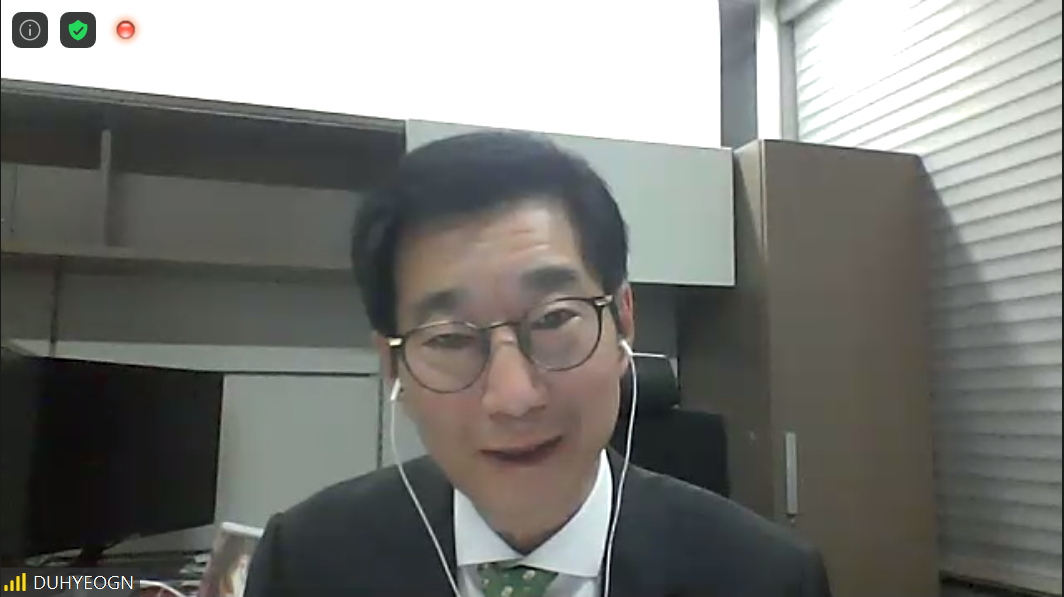
Cha Du Hyeogn, Principal Fellow of the Asan Institute for Policy Studies and Acting Secretary of Crisis Information of the Blue House, delivers a speech
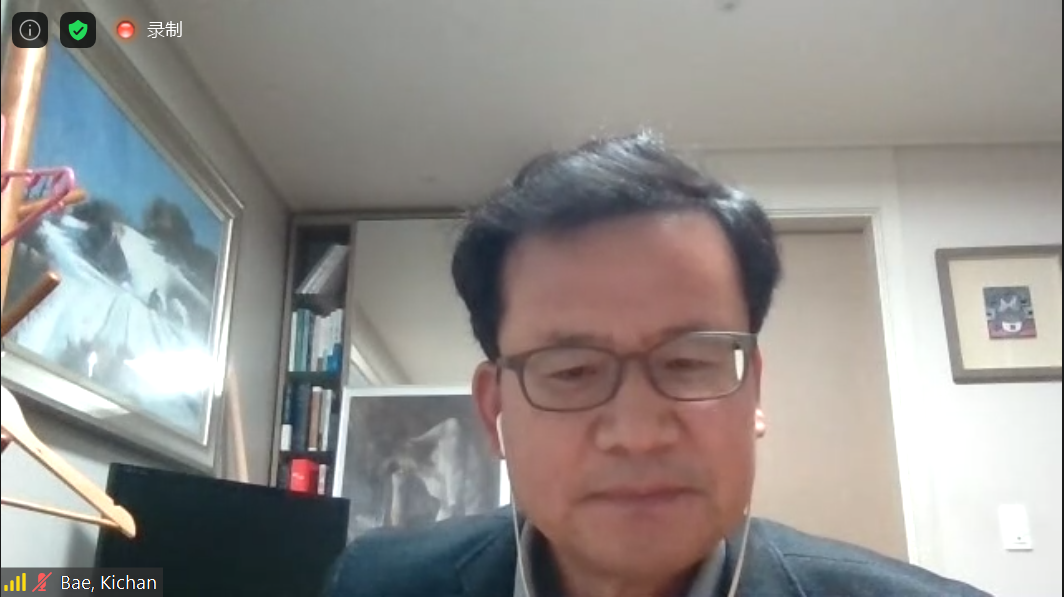
Bae Ki-chan, part-time Professor and Consultant of the Korea National Diplomatic Academy, delivers a speech
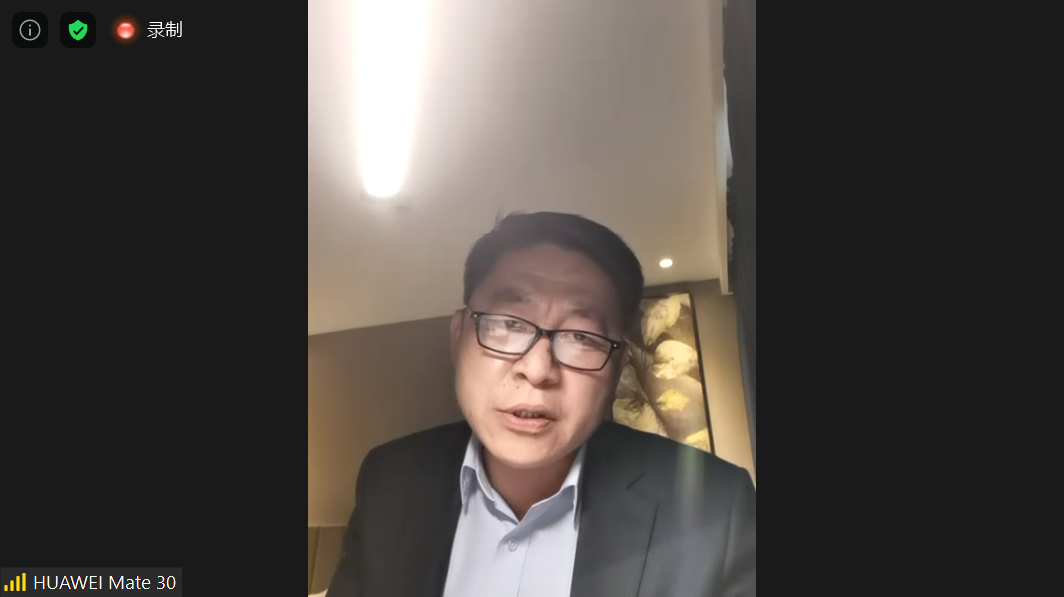
Piao Dongxun, Director of the Institute of International Politics and Professor of the Department of International Politics of Yanbian University, delivers a speech
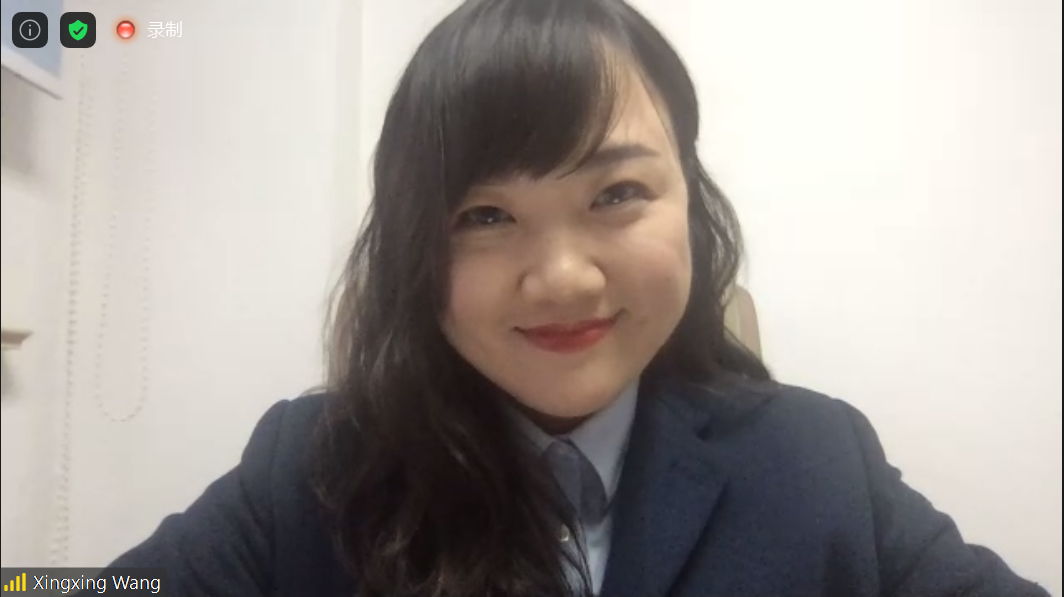
Wang Xingxing, Professor of the Korean Peninsula and Asia-Pacific Strategy Research Center of the Shanghai International Studies University, delivers a speech
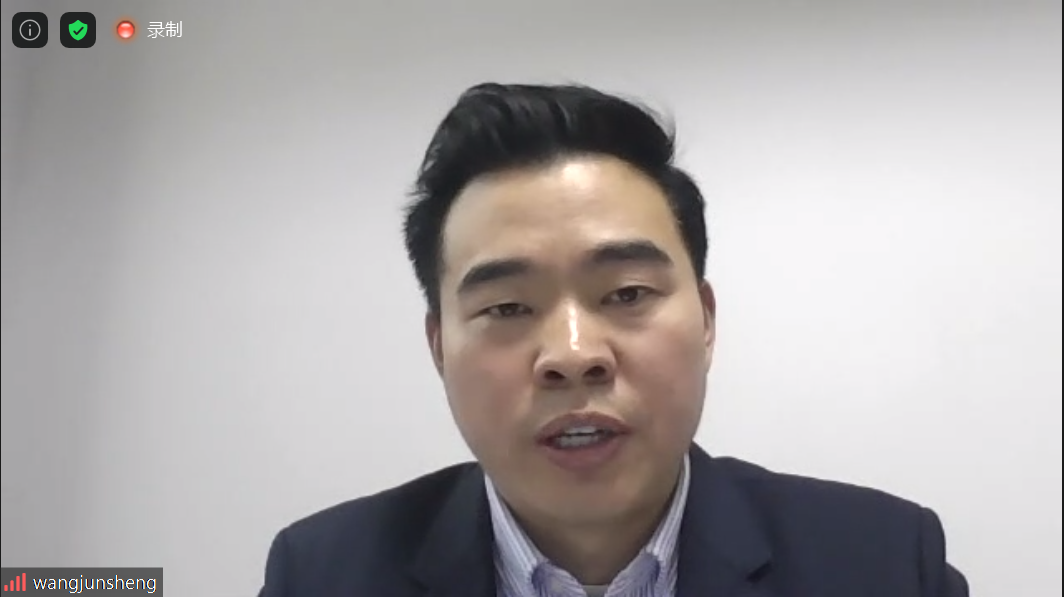
Wang Junsheng, Research Fellow of the National Institute of International Strategy of the Chinese Academy of Social Sciences (NIIS CASS) and Director of the China Neighboring Strategy Laboratory, delivers a speech
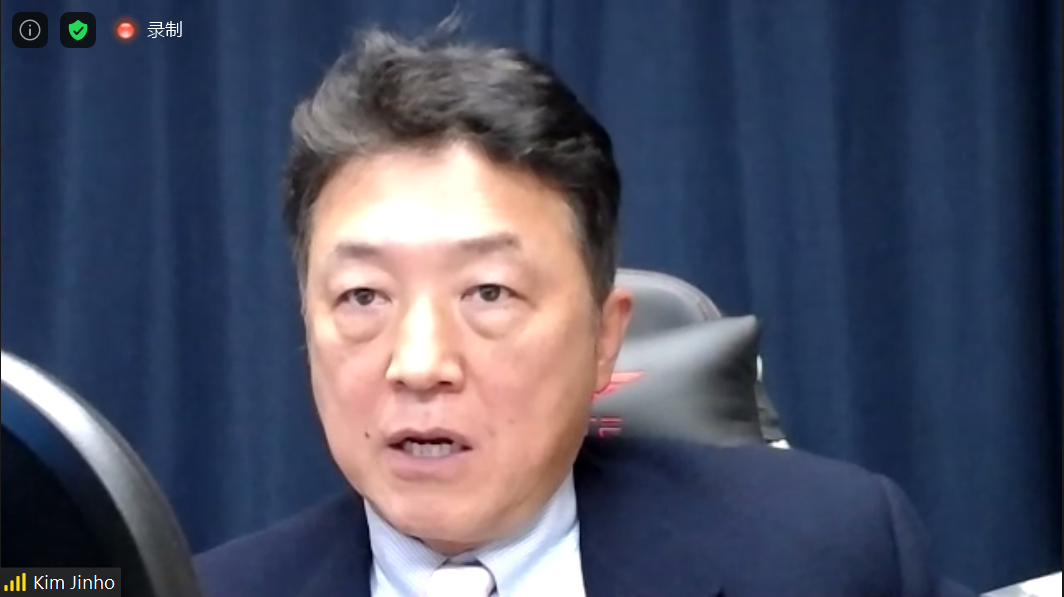
Kim Jin Ho, Professor of the Department of Diplomacy of Dankook University, delivers a speech
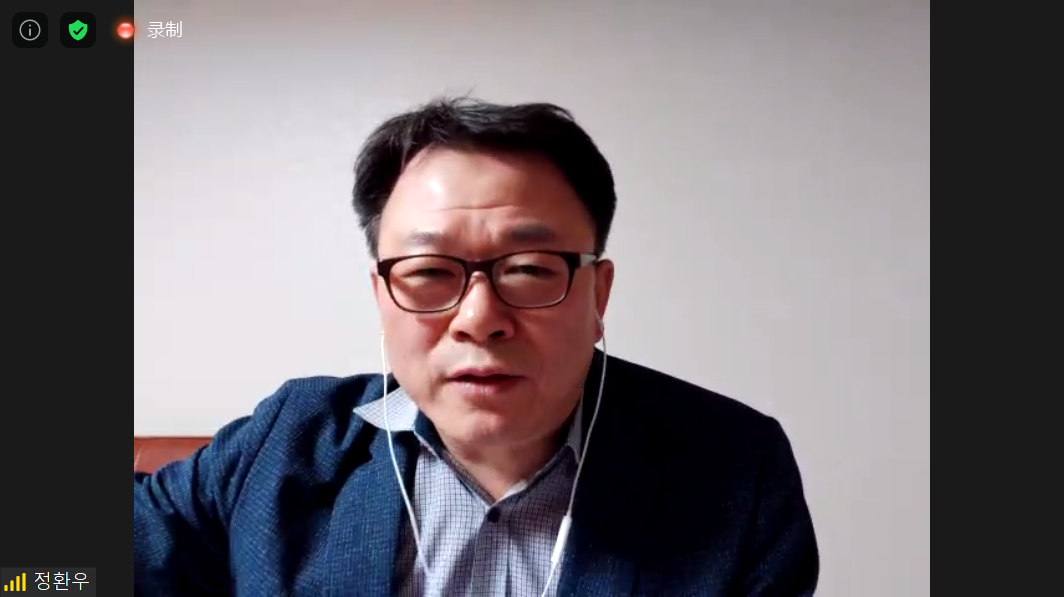
Jung Whan Woo, Chinese Investigation Officer of the Korea Trade-Investment Promotion Agency, delivers a speech
At the end of the conference, Jia Qingguo, Director of the iGCU of Peking University, and Heung-kyu Kim, Director of the U.S.-China Policy Institute of Ajou University, delivered concluding remarks on behalf of the Chinese and South Korean participants, and thanked the participating scholars from both China and South Korea for the successful organization of the conference. Both parties highlighted the importance of China-Korea cooperation and vowed to continue to promote strategic mutual trust between the two countries, deepen China-Korea cooperation and make greater contributions to the stability of the Korean Peninsula via academic communication and dialogues.
